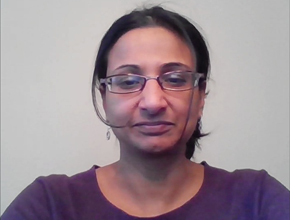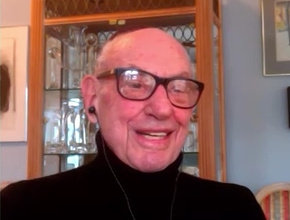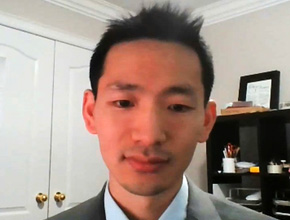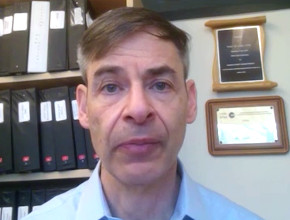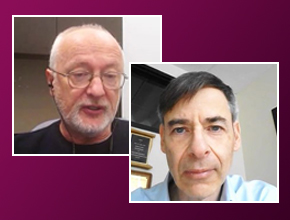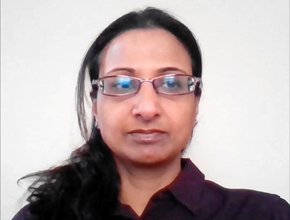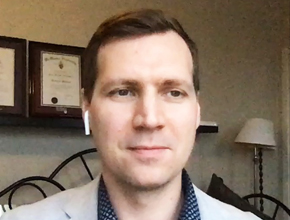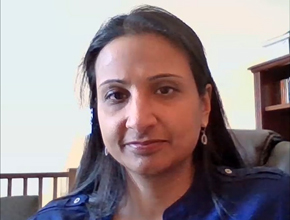Dr James Douketis, professor in the Division of Hematology and Thromboembolism at McMaster University and president of Thrombosis Canada, talks with Dr Roman Jaeschke about perioperative anticoagulant management around low-risk procedures.
Roman Jaeschke, MD, MSc: Good afternoon. Welcome to another edition of McMaster Perspective. Today is the 24th of December and in a true holiday spirit I would like to ask Dr Douketis, who is a world expert in periprocedural and perisurgical management of anticoagulation [see Perioperative Direct Oral Anticoagulant (DOAC) Management], to tell our listeners about the situations where they don’t need to do anything. That’s our holiday gift.
Jim, you are the person who tells the world what to do around the time of procedures or surgeries. Let’s talk about when nothing needs to be done.
James Douketis, MD: Thank you very much, Roman. It’s a pleasure to be a part of this series.
The clinical problem that we are addressing is, as everyone knows, very common, and spans from minor procedures, which may not require anticoagulant interruption, to complex surgeries or neuraxial anesthesia.
Let’s talk about minor procedures and situations where, as you say, you don’t need to interrupt anticoagulation. Increasingly, we’re becoming aware of procedures, like cardiac device procedures, pacemaker implantations, internal cardiac defibrillator implantations, atrioventricular (AV) node ablation, cardiac catheterizations, that can be done without interruption of anticoagulant therapy; especially cardiac catheterization administered through a radial approach. And then we have noncardiac procedures, such as minor dental procedures, minor skin procedures, biopsies, and minor eye surgeries (typically cataract surgeries), where we think that all of these can be done without interruption of anticoagulant therapy around the time of the procedure.
Roman Jaeschke: If you are talking about minor dental procedures, could you expand on this a little bit?
James Douketis: Yes, of course. Here we have to recognize that not every situation is the same. When we refer to minor dental procedures, specifically we are referring to single tooth extractions and endodontic or root canal procedures. But having said that, there will be patients that may have poor dentition, where it is anticipated that bleeding will be considerable, and of course one would have to modify their approach in that situation. So we’re talking about the average patient, in whom we anticipate the bleeding risk will be low.
Roman Jaeschke: How about colonoscopies, gastroscopies?
James Douketis: Colonoscopies are very interesting. Of course, they are very common now, especially with an ageing population, but they are interesting in the sense that many gastroenterology societies recommend that you do not have to interrupt anticoagulation for routine colonoscopies. Yet in practice what we see is a lot of gastroenterologists are reluctant to follow that, and I think it’s because there is a lack of evidence to support this practice.
So what do we recommend for patients that would have a screening colonoscopy where maybe some biopsies will be taken but one does not expect to find erosive lesions or major polyps to be removed? In those situations we think it is safe to allow the patient to continue anticoagulant therapy. Having said that, again, there is going to be situations with colonoscopy or other gastroenterologic procedures where interruption would be warranted.
Roman Jaeschke: Where would you put bronchoscopy?
James Douketis: We have far less experience with bronchoscopy than we do with gastrointestinal (GI) procedures. Once again, I think that is dictated by the clinical situation. Most bronchoscopies are done to identify a malignant lesion, or maybe in the setting of bleeding. In general we would want to interrupt [anticoagulation] in those situations as a default approach but, once again, we don’t have a lot of experience there.
Roman Jaeschke: You mentioned biopsies. You don’t mean biopsies of a solid organ, like kidneys or liver. You probably mean mostly skin biopsies.
James Douketis: Yes, we are referring to the superficial type of biopsies, so skin biopsies, perhaps even bone marrow biopsies. But when we are taking a biopsy of a highly vascular organ, such as the thyroid, kidney, or liver, especially if there may be impairment in those organ functions (liver and kidney in particular), then interruption would be warranted.
It is also important to recognize that when these patients bleed, let’s say after a kidney biopsy, they are not going to have typical symptoms. As we all know, such bleedings can be delayed and they can accumulate, so caution really is warranted in those situations.
Roman Jaeschke: We are talking about new direct oral anticoagulants (DOACs). Does it apply to warfarin as well?
James Douketis: The data on uninterrupted procedures are mostly in patients who are receiving a vitamin K antagonist. In North America it may be warfarin, in Europe it typically is acenocoumarol. We have fewer data with uninterrupted DOAC therapy. These data are emerging, especially for the cardiac procedures that I mentioned, but clearly this is an area where we need to have additional data.
What I would suggest to people in the meantime is that if the patient is on a DOAC, simply skip the DOAC on the day of the procedure. The reason is that we know that DOACs have a rapid anticoagulant effect, their peak action is about 1 to 3 hours after intake, so it doesn’t really make clinical sense for a patient to receive a DOAC and have the procedure shortly thereafter.
Roman Jaeschke: The same will apply to warfarin, I suspect. You wouldn’t ask people necessarily to take warfarin on the day of the procedure.
James Douketis: Of course, warfarin has a slightly different pharmacokinetic mechanism, so whether they take it on the day off or not does not really matter too much. But I think for the DOACs, in the absence of evidence, it seems prudent to just skip the dose on the day of the procedure.
Roman Jaeschke: Thank you very much for this low-risk procedure advice. In the next interview we will talk about high-risk procedures. Thank you and enjoy the holiday.
James Douketis: Thank you very much. Same to you.
 English
English
 Español
Español
 українська
українська

